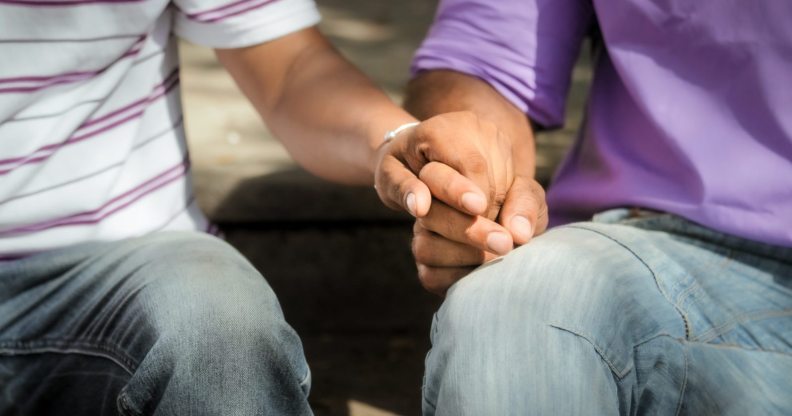A refugee tribunal said two men couldn’t possibly be gay because they couldn’t recall what they did after sex

(Stock photo via Elements Envato)
Two gay men from Pakistan feared for their lives as they stood in front of the courts.
Faced with imminent deportation to a country that would subject them to persecution, the pleaded with the courts that, as gay men, this tribunal hearing could define their lives.
But their seven yearslong battle to becoming recognised as refugees was bungled by a tribunal that rejected their claim because, they claimed, it was “implausible” that the couple would be unable to remember what happened after they first had sex, Buzzfeed News reported Wednesday.
Australia’s highest court has since granted an appeal for the men.
Pakistan’s penal code has long snarled efforts from activists to overturn the country’s vicious laws and mores. While anti-LGBT laws are often not directly enforced by authorities, mob rule often reigns, leading to vigilante executions, beatings and torture.
The gay men couldn’t remember what happened after having sex six years ago, so courts denied refugee claim.
The two men, H and I (identities protected) arrived in Melbourne to study in 2009, sharing a room together.
Their fathers had introduced H, a teenager, and I, in his early 20s, to one another in Pakistan.
It was around then that the pair slept with one another, they told the Federal Court of Australia, after a night out for H’s birthday.
Drinking, dancing and chatting about whether they’re interested in women, H and I bounced back home
“As we were both drunk, we couldn’t control to express our feelings at that night and finally we share all those pleasures which gay couples would do,” H told the tribunal heating in 2016.
But in the patchwork of anecdotes from the men, courts noted that each man gave a differing account of what happened after they had sex.
In guessing how the two men – raised in conservative households – would react after first having sex, the courts may have cost H and I their refugee status.
Indeed, both men varied in saying whether they did or did not talk about what happened the day after, and both gave contrasting timeframes about the next time they had sex.
As a result, the courts said it was “implausible” they had sex, despite it being around six years ago. Moreover, the courts purported, as it was their first same-sex encounter, it would make the act more memorable, yawning an alleged hole in their stories.
Austalia’s highest court calls the tribunal findings ‘logically flawed’ and will now be reassessed.
The Federal Court of Australia chose to overturn the tribunal’s decision, documents showed. Two of the three judges dubbed the findings “logically flawed” and based on n expected, textbook psychological assumptions on how the men would and should have reacted.
“It cannot be said that the psychological reactions of a couple to their first sexual encounter are matters of common human experience,” justices Bernard Murphy and Michael O’Bryan said.
“Indeed, to the extent that anything can be said about such matters from common human experience, it would be that the psychological reactions of a couple to their first sexual encounter are likely to vary widely, reflecting the wide range of human emotional attributes.”
Judges majoritively described the tribunal findings as a legal error and will now be flung back to the Administrative Appeals Tribunal to be heard again, plunging their pair’s refugee status back into uncertainty.

